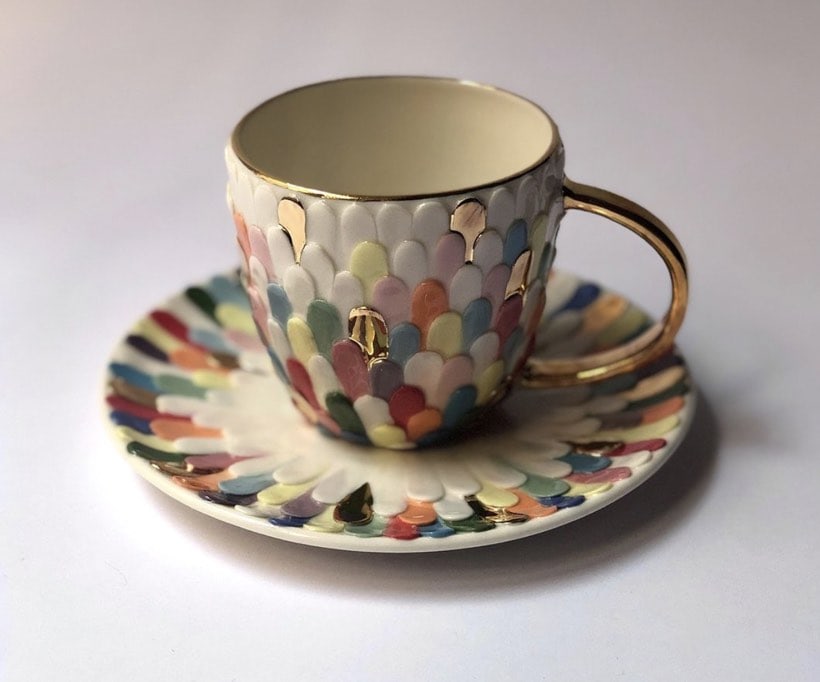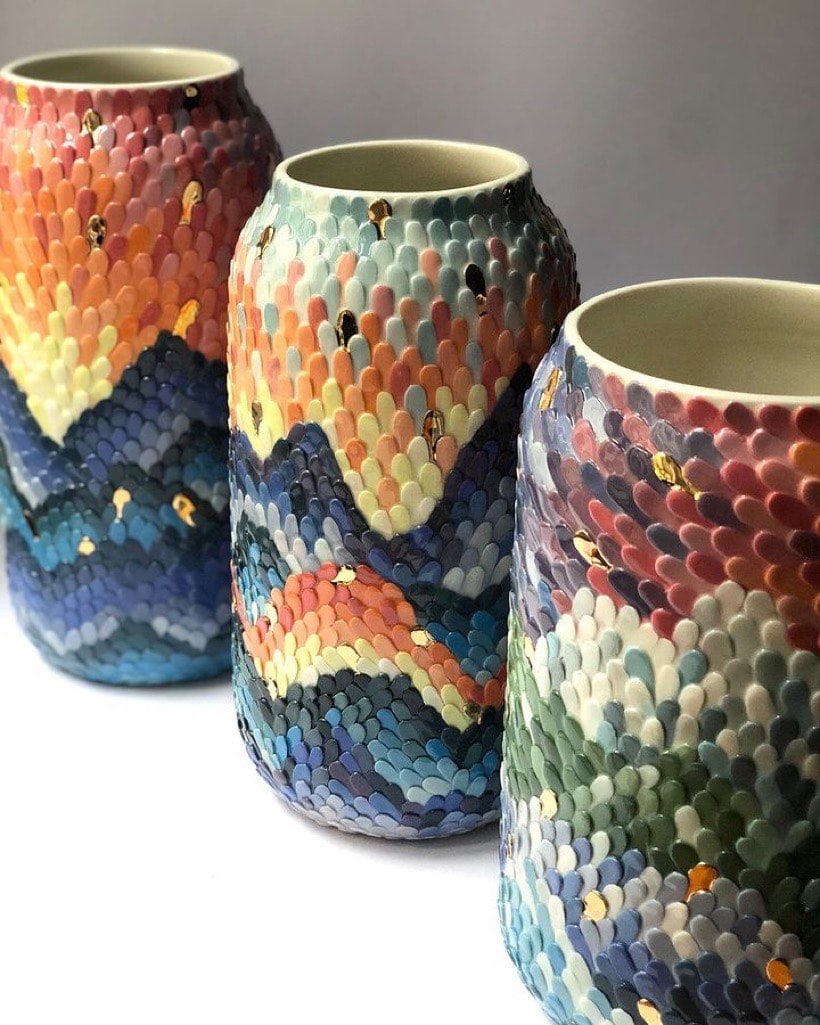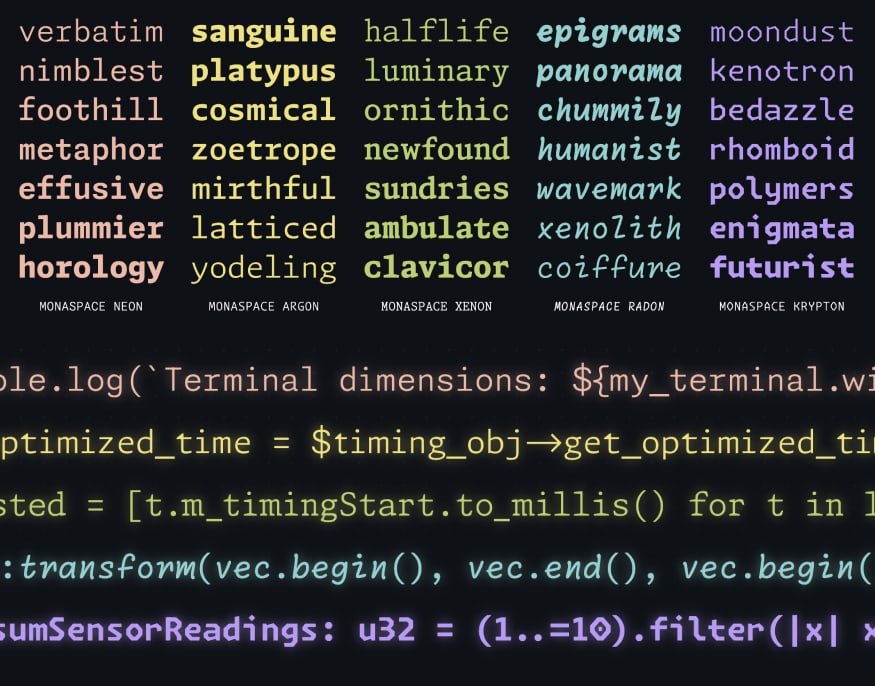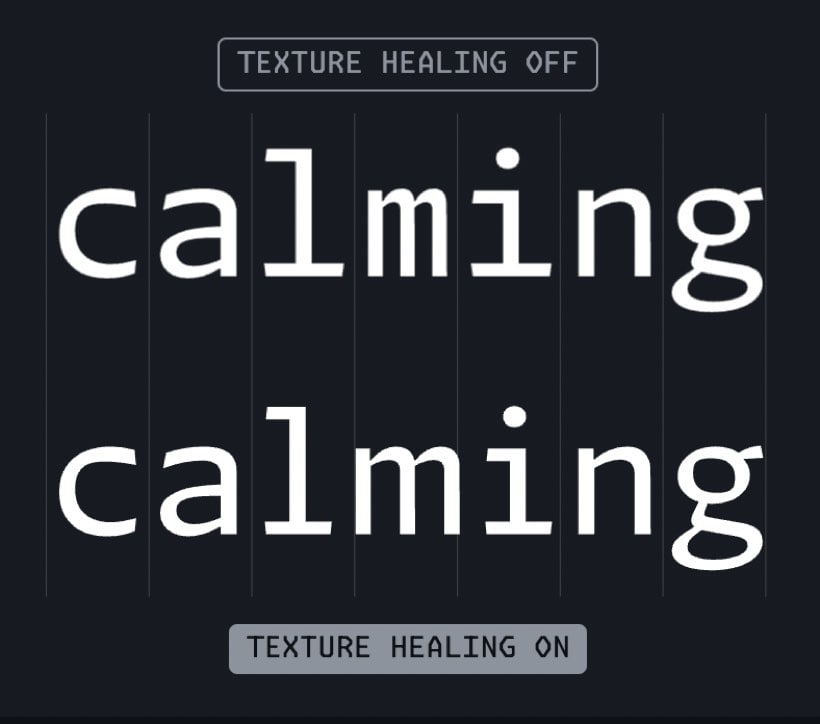 |
| |
|
|
|
Social media brims with dubious solutions to health problems we didn’t even know we had. In her latest piece for The Guardian, writer and journalist Katherine Rowland asks why health and wellness have become a quasi-religion for so many and what possible underlying systemic issues this points to.
“The industry’s offerings run the gamut from the tried and true (walking) to the benignly absurd (crystal dildos) to the predatory and dangerous (castor oil for cancerous tumors). [Author of The Gospel of Wellness Rina Raphael] writes that being healthy once meant dutiful visits to the doctor, but now entails a never-ending quest to overcome sickness, sadness, stress and even death.”
Women, in particular, who, in addition to feeling the general pressures of modern life, are constantly reminded “to enhance the body, radiate poise, master impulses (hunger, rage) and perfect the contortions required of the double standard”, seek respite in the illusion of control and empowerment offered by the wellness cult.
But Rowland argues that health outcomes often have less to do with the remedies we use than with the structural circumstances in which we find ourselves:
“The social determinants of health – factors like air quality, domestic safety, community support and education access – account for as much as 80% of health outcomes. But these realities are neatly erased from most wellness marketing. … Joining a union would arguably deliver greater benefit than downloading another meditation app, but the wellness market presents the latter as a logical solution to work-related stress and deteriorating mental health.
“‘We’re sedating women with consumerist self-care’, Raphael says. ‘You’re not stressed because you’re not doing enough yoga or taking enough bubble baths. There are other, bigger reasons why you feel stressed out. Maybe it’s because you don’t have maternity benefits. Maybe it’s because your boss is emailing you after 6pm. Maybe it’s because your partner doesn’t help you with the workload at home. These are the things that get shoved under the rug and instead you’re told that you yourself, alone, have to take care of the issues.’”
The fact that our perception of health and wellness is so easily shaped by scammers, snake oil peddlers and influencers points to underlying needs that are real and urgent. Let’s acknowledge that we live in a time of polycrisis that haunts many of us with an omnipresent sense of precariousness – hardly ideal conditions in which to ‘flourish’, to borrow some health influencer lingo.
Once we move beyond the consumerist mindset to wellness, we may realise that wellbeing does not require an extensive menu of goods and services. “It means social support, medical care that is accessible and empathetic, decent working conditions and ready sources of affordable and nutritious foods.”
“Perhaps wellness, if we are to embrace its full potential, should dispense with the fantasy that we should always be fit and chipper, or strive to be. Perhaps it is far healthier to agitate against the circumstances making us sick and miserable than it is to latch our hopes to another glossy promise.”
– Kai
|
| |
|
DD relies on word of mouth
If you’re enjoying DD, chances are your friends and colleagues will, too! Help me reach more readers by sharing the link to this issue with others:
densediscovery.com/issues/265
You receive this email because you subscribed to Dense Discovery, a weekly newsletter at the intersection of design, tech, sustainability, urbanism and more. Writing to you from Melbourne is Kai Brach. Do you have a product or service to promote in DD? Find out more about advertising in DD.
|
| |
What is Business Expertise? SPONSOR
|
|
In 2009, expertise researcher Lia DiBello discovered that every great business person shares the same mental model of business. This model consists of two things: first, a ‘triad’ model of three core areas of business, and second, a mental trait called ‘cognitive agility’. I first discovered DiBello’s research in a 1000-page book called The Oxford Handbook of Expertise. Visit my blog Commoncog for a succinct, insightful summary of her work.
|
|
| |
Apps & Sites
|
A friends-only photo journal
|
|
A less competitive and attention-seeking way to share weekly photos with close friends: “It’s a friends-only photo journal that helps you backfill each week with your favorite photos, videos, and screenshots from your camera roll. With just a little time, you can build an awesome retrospective for friends & family to look back on.” Available for iOS and Android.
|
|
|
An open-source CRM that allows you to co-develop and customise the tool according to your business’ needs. Twenty is incorporated as a Public Benefits Company, which means they are legally bound to consider the broader impact of their decisions on all stakeholders. More details on their Github page.
|
|
|
Wanderlog is a comprehensive trip planner app (web and mobile) that lets you easily add items to an itinerary, collaborate with friends/partners, import hotel and flight bookings, track expenses and much more. There are also lots of tips and recommendations about places that you can automatically pull into your itinerary from other users.
|
|
|
A fascinating tool that tracks thousands of ships around the globe in real time. The platform is built for professional use, but even for amateurs it’s fun to browse and discover an incredible amount of detail about the many, many ships floating around our seas.
|
|
| |
Worthy Five: Bruno de Carvalho
|
|
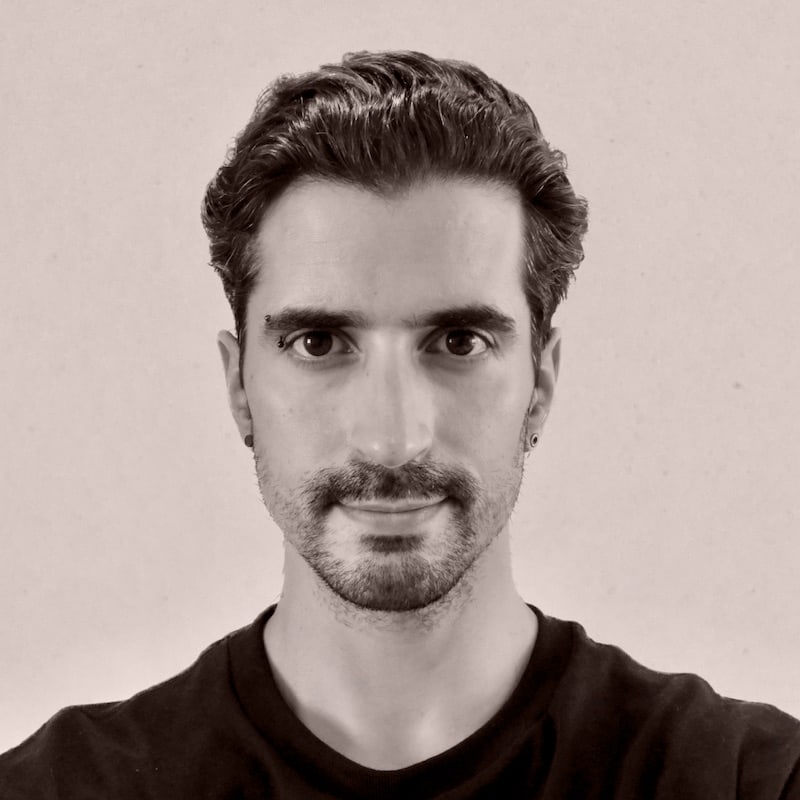
Five recommendations by software engineer and off-roading enthusiast Bruno de Carvalho
|
A word worth knowing:
Flashover – from the Dictionary of Obscure Sorrows: “the moment a conversation becomes real and alive, which occurs when a spark of trust shorts out the delicate circuits you keep insulated under layers of irony, momentarily grounding the static emotional charge you’ve built up through decades of friction with the world.”
A piece of advice worth sharing:
Don’t take anything personally – one of The Four Agreements. It’s easy to forget that other people’s actions and words are a reflection of their own reality and not about you. By taking things personally, one subjects oneself to unnecessary emotional distress and becomes a prisoner of others’ opinions and judgments.
A podcast worth listening to:
99% Invisible: each episode takes you on a meticulously crafted, narrated exploration of the hidden design, engineering, and architectural considerations shaping our environment. It’s worth going back to the first few seasons – most of the content is evergreen!
An activity worth doing:
Rock climbing is a holistic exercise in problem-solving with both mind and body. You start by drawing a mental blueprint of your climb but the tactile experience on the wall often leads to spontaneous adjustments, a fun mix of strategy and action.
A book worth reading:
Four Thousand Weeks by Oliver Burkeman argues that the frenetic pursuit of unlimited productivity is a futile endeavour. Fully embracing this limitation brings what truly matters into focus and allows one to live a more meaningful and fulfilling life. [See also DD182]
(Did you know? Friends of DD can respond to and engage with guest contributors like Bruno de Carvalho in one click.)
|
|
| |
Books & Accessories
|
Alternative ways to promote your work
Self-published by Melbourne-based author and creative Tess McCabe, this new guide is packed with actionable, tried-and-true self-promotion strategies outside the social media circus, like asking for reviews, collaborating with others, working with mentors and many more. It’s an interactive workbook that includes checklists for best practice and interviews with other successful small business owners. Friends of DD enjoy a 10% discount.
Become a Friend to access specials like this.
Buying a printed copy from outside of Australia? Order your copy here.
|
|
Lessons from The School of Life
A new book by Alain de Botton, founder of The School of Life, in which he lays out the full mental health journey, from crisis to recuperation. “Written with understanding and kindness, it is both a source of companionship in our loneliest moments – whether it’s a relationship breakdown, a career setback or anxiety around the everyday – and a practical guide that will help us find reasons for hope. We are all on our own journey towards recovery. This book is for anyone ready to understand theirs.”
|
|
| |
Overheard on Threads
|
|
I left Twitter a few weeks ago and no one noticed. I’m on Threads and no one notices. That’s called a balanced social media life, folks.
|
| |
Food for Thought
|
|
As I describe in my intro, an excellent piece by Katherine Rowland on how the wellness industry has become something close to a religion for some, offering the illusion of control and empowerment. “Wellness, she argues, presents collective social ills as problems for the individual to solve through some alchemy of consumer behavior. Joining a union would arguably deliver greater benefit than downloading another meditation app, but the wellness market presents the latter as a logical solution to work-related stress and deteriorating mental health.”
|
|
|
Apologies for sending you to the Forbes website, but this is a thought-provoking interview with Marjorie Kelly, a Distinguished Senior Fellow at The Democracy Collaborative, a non-profit working to catalyse the creation of a democratic economy. She’s the author of a new book called Wealth Supremacy in which she shows how we valorise wealth and are ‘capital biased’ in the same way that we’re often gender or race biased. “The ultimate tool that we have is legitimacy. What brought down apartheid? It was that that regime of apartheid lost legitimacy because it was perceived as white supremacist, illegitimately favoring white people over people of color. When we recognize that the capital extraction system is wealth supremacist, I think that loss of legitimacy could bring the system down, and should.”
|
|
|
Clementine Ford is a well-known Australian feminist writer with a list of best-selling books. In this funny, hard-hitting and very persuasive conversation recorded in Naarm (Melbourne), Ford talks about her latest book in which she makes a strong case against marriage. “She’s taking on an age-old institution that she argues harms women, and has throughout history. She wants marriage abolished. From white weddings to wandering wombs, coverture to capitalism, I DON’T is full of stories of resistance, rage, and re-imagining. It’ll shock and rile some, for others it’ll be a case of hard relate.”
|
|
| |
Aesthetically Pleasing
|
|
Laima Laurina is a Latvian ceramics artist using a special technique to create colourful, highly textured pieces of porcelain.
|
|
|
The wonderful Draped House in Sydney’s north has been passively designed around beautiful gum trees to capture natural sunlight and ventilation without relying on artificial heating and cooling. The all-electric, solar-powered home uses recycled timber for doors and windows and locally-sourced Australian hardwood for its timber cladding.
|
|
|
Melbourne-based Cal explores geometric minimalism through art, both in two-dimensional and three-dimensional space. Make sure to watch some of his process videos of creating sharp-lined geometric paintings and murals.
|
|
|
The free Monaspace type system is a monospaced type superfamily with some modern tricks up its sleeve. It consists of five variable axis typefaces with the goal of improving all code, for all developers.
|
|
| |
Notable Numbers
|
|
A new study analysing the energy footprint of artificial intelligence estimates that ChatGPT responds to 195 million requests per day, requiring an estimated average electricity consumption of 564 MWh per day, or, at most, 2.9 Wh per request. In a worst-case scenario Google’s AI alone could consume as much electricity as a country such as Ireland (29.3 TWh per year).
|
|
|
From 2025, 20 blocks of Stockholm’s inner city area, spanning its finance and main shopping districts, will be restricted to electric vehicle traffic only, becoming the first big capital city to ban petrol and diesel cars from its centre.
|
|
|
US Americans are piling up record credit card balances. During the third quarter of 2023, credit card balances hit a fresh high of $1.08 trillion, rising $48 billion from the prior quarter and leaping by a record $154 billion from the year before.
|
|
| |
Classifieds
|
|
Get help writing and publishing your book. If you want to write a book but can’t seem to start, then this Writing Camp is made for you. From concept to completion.
Never be bored with The Browser, the newsletter for curious minds. We recommend outstanding articles in every field, so you’ll always have something new to ponder. Try it today.
There is a shortcut at being great at marketing. Fill out a short survey and get a tailored marketing guide with strategic steps for your business in just two days. Try Siesta.
MakeDo helps design studios make more money in less time by building world-class Webflow websites in a matter of days. Get your design built exactly how you designed it today.
|
|
Classifieds are paid ads that support DD and are seen by our 35,000 subscribers each week.
Book yours →
|
|
| |
The Week in a GIF
|
|
Reply with your favourite GIF and it might get featured here in a future issue.
|
|
| |
|
DD is supported by Friends and the modern family office of  . .
|
| |







